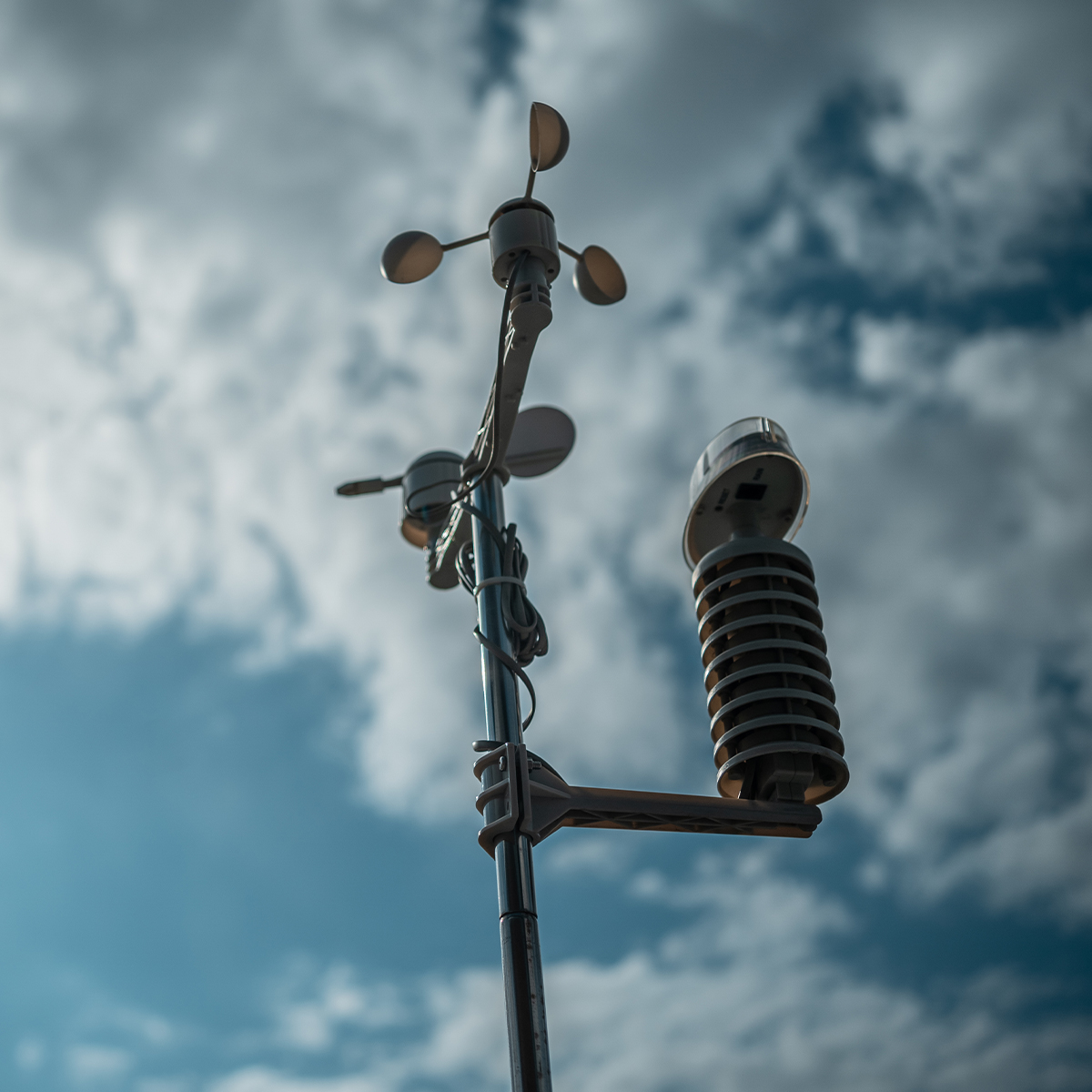-
Schaden & Unfall
Schaden & Unfall ÜberblickRückversicherungslösungenTrending Topic

Schaden & Unfall
Wir bieten eine umfassende Palette von Rückversicherungslösungen verbunden mit der Expertise eines kompetenten Underwritingteams.
-
Leben & Kranken
Leben & Kranken ÜberblickUnsere AngeboteUnderwritingTraining & Events

Leben & Kranken
Wir bieten eine umfassende Palette von Rückversicherungsprodukten und das Fachwissen unseres qualifizierten Rückversicherungsteams.
-
Unsere Expertise
Unsere Expertise ÜberblickUnsere Expertise

Knowledge Center
Unser globales Expertenteam teilt hier sein Wissen zu aktuellen Themen der Versicherungsbranche.
-
Über uns
Über uns ÜberblickCorporate InformationESG bei der Gen Re

Über uns
Die Gen Re unterstützt Versicherungsunternehmen mit maßgeschneiderten Rückversicherungslösungen in den Bereichen Leben & Kranken und Schaden & Unfall.
- Careers Careers
“Weather” or Not to Use a Forensic Meteorologist in the Claims Process – It’s Not as Expensive as You Think

8. Januar 2025
Jonathan Nieman,
Daniel Schreiber (Senior VP of Meteorology at J.S. Held) (guest contributor)
Region: North America
English
The Insurance Information Institute cites hail and wind damage as the leading causes of homeowners insurance losses, accounting for nearly 40% of claims from 2018‑2022.1 Natural catastrophes comprise 15% of all commercial claims, of which 64% are losses from hurricanes, floods, freezes, tornadoes, hail, and convective storms.2 Data from Verisk suggests that the frequency of hail, wind, and tornado events is increasing.3 Population expansion and movement into more weather-vulnerable regions further fuel the increase in property losses and year-over-year claims growth.
In today’s environment, policyholders are better educated and more equipped to navigate a weather-related loss, with online weather sources, apps, YouTube videos, drones, imaging databases, claims/legal professionals, and contractors available to assist an insured or claimant. These resources can benefit the claims process, but they may also support approximately 10% of the claims that may involve insurance fraud4 or other incorrect claims information. Whether by exaggerated or fabricated weather conditions or events, inconsistent damage, or manipulated data, an insurer should consider retaining a forensic meteorologist for weather-related claims, especially those with “red flags,” coverage issues, causation questions, or damage disputes.
We met with Certified Consulting Meteorologist (CCM) Daniel Schreiber, VP of Meteorology at JS Held, to better understand the specialty of forensic meteorology and its place in the claims process. Here is some of what we learned.
What is Forensic Meteorology?
Mr. Schreiber characterizes forensic meteorology as a distinct discipline that merges meteorology – the study of weather and climate – with forensic science. He describes the role of forensic meteorology as essential in investigating weather-based insurance claims or claim issues.
A forensic meteorologist analyzes historical weather conditions at a claimed loss location and provides substantiated, accurate weather data to confirm or to refute a claim’s validity. In the underwriting process, a forensic meteorologist can accurately assess weather risks at a given location before a policy is issued, potentially mitigating future losses from weather-related events.
Why Choose a Forensic Meteorologist?
An insurer should consider several factors when retaining a forensic meteorologist for its claim investigation.
Reliability
Decisions in the Florida courts illustrate the potential for legal challenges in using online weather database reports. In both Ivette Hernadez vs. Citizens and Universal Property and Casualty vs. Navlen,5 Florida courts ruled the policyholders’ experts’ testimony was unreliable and inadmissible after the experts in both cases relied upon online weather reports to prove weather conditions on the date of loss. The courts came to this conclusion because the online reports relied upon data and calculation methods that could not be verified, supported, or corroborated.
Schreiber points out that computer-generated weather reports often keep their methodologies secret, making it difficult to assess their accuracy and reliability. He notes “while online reports may sometimes be correct, they can also be tragically incorrect.” Although online reports offer a starting point for insurers, relying solely on these reports without knowing their underlying methods or peer-reviewed acceptance, especially in a contested or litigated claim where causation, damage, or coverage is in question, can be quite risky. A forensic meteorologist can access specialized databases and tools to retrieve and examine historical/current weather from multiple sources, rendering opinions that courts are more likely to find reliable and admissible as evidence.
Support
The forensic meteorologist can maintain a presence in the claim investigation and provide ongoing support, data analysis, and testimony that can be utilized in court, mediation, arbitration, or appraisal. The testimony of a weather expert can avert potential legal challenges, as illustrated in the previously mentioned Florida cases. In sum, the onus of interpreting the weather can be transferred to the expert – the forensic meteorologist.
Personalized Expertise
A forensic meteorologist provides a personalized and informed review of weather events tailored to the specific circumstances of the claim and event, including consideration of dates, times, duration, policy period(s), landfall, hail size, precipitation, and flood water inundation, as well as the speed, severity, and direction of the wind.
The meteorologist accounts for the specific situation and, working alongside the insurer’s other experts, offers informed opinions on how to proceed, providing comprehensive, clear, and scientifically backed reports. The opinion of the forensic meteorologist is not set in stone; it can be re‑examined, updated, and revised should new information be identified during the investigation or litigation.
Specificity
The forensic meteorologist’s work extends beyond providing general weather data and can be used to establish cause and effect, or the validity of claims made regarding a weather event. While an engineer or architect may be adept at performing weather research, the value of the forensic meteorologist is the added analysis and interpretation of the data. For example, their expertise enables them to help determine wind speeds or hail fall/size at a given location to assist an engineer in assessing the potential for property damage, or re‑create weather conditions (e.g., icy roads, fog, visibility) in vehicular crash reconstruction.
As Schreiber notes, “I bring the weather information to the doorstep of the loss, and a qualified engineer or building consultant takes over from there. At the end of the day, my role is to analyze and interpret weather data to provide accurate and reliable information that helps inform decisions related to a claim. The engineer, building consultant, appraiser, adjuster, and attorney are responsible for assessing the causation, extent of damages, and financials.”
Scope
The forensic metrologist’s expertise can extend and be tailored to weather analysis for use in many claims scenarios, including:
- Property Damage
- Agricultural
- Business Interruption
- General Liability / Slip and Fall
- Automotive / Vehicular
- Property Damage Liability
- Wildfire
- Parametric
- Subrogation
- Fraud / Special Investigations Unit
- Aviation
- Marine
- Underwriting / Loss Control
The Cost
Many forensic meteorologists charge a flat or project-based fee instead of an hourly rate. For example, pricing provided by Howard Altschule, CEO of Certified Consulting Meteorologist Forensic Weather Consultants LLC, shows the firm’s weather studies range from between $300 to $3800 depending on the report / weather type, the complexity of the case or project, and the scope / timeframe / urgency of the reporting needed. Of course, should the case require the testimony of the forensic meteorologist, companies should expect to pay between $150 to $500 per hour, according to Schreiber. Importantly, the forensic meteorologist collaborates with the client to complete the project while adhering to the budget.
Conclusion
While internet resources can be valuable tools, they are not adequate substitutes for the weather expertise of a forensic meteorologist. The need for a trained expert to accumulate, analyze, apply, interpret, and explain the meteorological data in a weather-related claim investigation is vital and should be seriously considered when the weather is at issue or in question. Engaging a forensic meteorologist ensures that the claims process remains fair, accurate, in good faith, and scientifically supported, ultimately leading to better outcomes for insurers and insureds.
Gen Re can assist in pairing the particulars of your claim with a competent, qualified forensic meteorologist. Please reach out to me or your Gen Re claims executive to learn more.

About the Guest Contributor
Daniel Schreiber is the Senior VP of Meteorology at J.S. Held and a Certified Consulting Meteorologist (CCM). His background is in military meteorology. He graduated from Embry-Riddle Aeronautical University in Prescott, Arizona, and spent nearly 6.5 years in the Air Force working aviation weather operations and severe-weather forecasting.
Endnotes
- “Facts + Statistics: Homeowners and renters insurance,” Insurance Information Institute, https://www.iii.org/fact-statistic/facts-statistics-homeowners-and-renters-insurance#Causes%20of%20homeowners%20insurance%20losses
- “Top causes of insurance claims for business: Allianz,”, July 19, 2022, iNLIP, https://www.insuranceprofessionalslatam.com/top-causes-of-insurance-claims-for-business-allianz
- Brunko, Aaron, “A Closer Look at 2024 Severe Weather Trends to Date: Hail, Wind, and Hurricane Activity,” Aug. 13, 2024, C&R, https://www.candrmagazine.com/a-closer-look-at-2024-severe-weather-trends-to-date-hail-wind-and-hurricane-activity
- “Fraud Stats,” Coalition Against Insurance Fraud, https://insurancefraud.org/fraud-stats
- “Florida Appeals Court Ruling Puts New Scrutiny on Wind Experts’ Credibility,” Oct. 31, 2023, Insurance Journal, https://www.insurancejournal.com/news/southeast/2023/10/31/746146.htm

